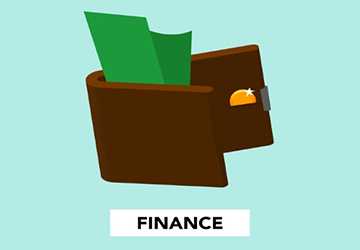How to Protect Your Finances From Cyber Threats
The world we live in has become highly technological and digitalized. While this does look like a positive step towards an advanced working world, we cannot deny that it comes with an ever-present threat of cybercrime.

Cybercriminals are constantly finding new ways to exploit individuals by attacking their vulnerabilities and gaining access to their sensitive financial information. Hence, one must take all proactive measures to protect themselves from such happenings. If you want to know how to do this, you have landed on the right page. Hop on below to learn how to protect your finances from cyber threats.
Top Tips to Protect Your Finances from Cyber Threats
Protecting your finances from cyber threats might sound highly daunting to some. However, it only consists of taking some simple measures. Here is all that you need to and should do:
1. Update Software and Operating Systems Regularly
Cybercriminals are often bound to exploit individuals who have outdated software and operating systems the most. Hence, a person needs to stay ahead of the potential threats by regularly updating their computer, phones, and other devices or whenever a new update comes. The best approach is to enable automatic updates on your device as soon as they arise.
2. Wi-Fi connections Should be Safe.
We repeat, never make online transactions or access confidential financial information on unsecured or public Wi-Fi; this is the most significant way through which you can put your finances at risk. Cybercriminals have a habit of compromising public networks, which gives them access to intercept public data. Hence, whenever you need to make transactions or open your bank application online, only do it at home or on secured Wi-Fi.
3. Use Strong Passwords
One of the primary ways people can put their finances at risk is by using weak or the same passwords. We all have a habit of forgetting our passwords from time to time, and to ensure that people do not forget their passwords for good, many keep the same passwords, which is relatively easy in all of their accounts. Through this, they are putting their crucial information and finances at risk because if a hacker gains access to one of your accounts, they can easily make their way to the others.
4. Watch What You Click
We know clicking on random links online can allow malware to enter your systems. Moreover, it can also lead people to fake versions of websites on which hackers can then gain access to their confidential information and passwords. Hence, people must know what they click on before clicking on a URL link.
5. Enable Multifactor Authentication
The best way to protect your finances from cyberattacks is by enabling multifactor authentication. This particular authentication aspect is a step away from single-factor authentication. It allows users to add protection by using two or more factors, such as codes, prints, or passwords sent by texts. Users can also encrypt fingerprint, voice, or facial recognition as a more robust biometric approach.
6. Look Out for Phishing Scams
Phishing has been a common tactic that cybercriminals have used for years to make individuals fall into their trap. Hence, it is essential to look out for such scams. It is vital for any user trying to protect their finances from cyber criminals to be cautious of unsolicited emails, messages, or phone calls that ask for any detailed personal information or financial data. Make sure to verify the caller's authenticity before responding or clicking on any links that come your way.

7. Only Use Reliable Websites or Secured Financial Means
The protective measure on our list is to use only trustworthy websites or secure connections when making financial transactions or online purchases. Your online purchases can sometimes look enticing and worthy enough to be bought. However, when you enter your financial information to make payments through the website, you're setting yourself into a trap that was spread out for you. Hence, be sure to watch out for all this and do not suffer from financial loss at the hands of cybercriminals.
8. Invest in Antivirus and Security Software
Investing in antivirus and security software is another significant step to protect your finances from cyberattacks. These aspects can help secure your devices and prevent malware, ransomware, or other cyber threats from entering your system and device and putting your financial information at risk.
9. Actively Check your Credit Reports and Bank Statements
One aspect many people need to follow up or even think about is checking their credit reports or bank statements for any errors. Whenever a cybercriminal attacks your finances, you'll see a misoccurrence in your bank statement or credit report.
It can be any transaction you did not make or a major purchase that wasn't made from your end. Hence, while not regularly, it is recommended for an individual to look into their credit report standings and bank statements a few times a month.
Conclusion
If you believe their finances have fallen on a cyber risk or want to take preventive measures before a significant loss hits them, then this article was helpful for you. Let us know whether or not you like the points we mentioned above and if you were already following a few of these points and aspects that you found new, too. We hope your finances remain safe and grow only.

